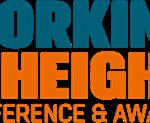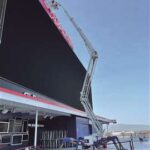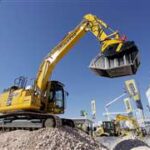How to Choose the Right Forklift? A Complete Comparison of Electric, LPG, and Diesel Models
How to Choose the Right Forklift? A Complete Comparison of Electric, LPG, and Diesel Models
Forklifts are the workhorses of warehouses and logistics, but with electric, LPG, and diesel options available, choosing the right one can be tricky. Let’s dive into a detailed comparison to help you make the best decision.
General Features of Forklifts
All forklifts share some common advantages and disadvantages.
Pros:
- Efficient Handling: Forklifts can move large quantities of goods much faster than manual labor.
- Heavy Lifting: They can easily lift loads weighing several tons, something humans can’t do.
- Improved Safety: Forklifts reduce the risk of accidents compared to traditional lifting methods.
Cons:
- High Costs: Forklifts are expensive to buy and maintain, especially electric models.
- Maintenance Required: Regular upkeep is necessary to keep forklifts running smoothly.
- Training Needed: Operating a forklift requires specialized training and certification.
Electric Forklift Pros and Cons
Electric forklifts are ideal for indoor use but have some limitations.
Pros:
- Eco-Friendly: Electric forklifts produce no harmful emissions, making them perfect for industries like food and pharmaceuticals.
- Quiet Operation: They run almost silently, ideal for noise-sensitive environments.
- Low Maintenance: With no engine, electric forklifts require less maintenance.
Cons:
- High Upfront Cost: Electric forklifts are more expensive to purchase than LPG and diesel models.
- Battery Life: Batteries need regular replacement, adding to long-term costs.
- Not Suitable for Outdoors: Unless specially designed, electric forklifts can be damaged in wet or extreme conditions.
LPG Forklift Pros and Cons
LPG forklifts are versatile for both indoor and outdoor use but come with some drawbacks.
Pros:
- High Lifting Capacity: LPG forklifts can handle heavy loads with ease.
- Cost-Effective: They are cheaper to buy upfront compared to electric forklifts.
- Operational Flexibility: LPG forklifts work well in both indoor and outdoor settings.
Cons:
- Emissions: While cleaner than diesel, LPG forklifts still produce some harmful gases.
- Shorter Lifespan: LPG forklifts generally don’t last as long as electric models.
- Fuel Hazards: LPG is flammable, requiring careful handling during refueling.
Diesel Forklift Pros and Cons
Diesel forklifts are perfect for heavy-duty outdoor work but have their own set of challenges.
Pros:
- Durability: Diesel forklifts are built to withstand tough conditions like construction sites or farms.
- High Lifting Capacity: They can easily move extremely heavy loads.
- Easy Refueling: Diesel forklifts can be refueled quickly, making them suitable for long shifts.
Cons:
- Pollution: Diesel forklifts emit harmful exhaust, which is bad for the environment and human health.
- Noisy Operation: They are louder than electric and LPG models, making them less suitable for quiet indoor environments.
- High Costs: While cheaper than electric forklifts, diesel models still have high maintenance and fuel costs.
Conclusion
Choosing the right forklift depends on your specific needs. Electric forklifts are great for indoor use, LPG models offer indoor-outdoor flexibility, and diesel forklifts excel in heavy-duty outdoor tasks. This comparison should help you find the perfect forklift for your business!




